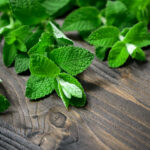This flavorful, tangy herb may sharpen your recall and cognitive function, study suggests
 (NaturalHealth365) In case you haven’t heard, getting older doesn’t do your memory any favors. As people enter their “golden years,” a condition known as age-associated memory impairment (AAMI) may begin to appear. AAMI can cause slowdowns in mental processing speed and deficits in working and long-term memory, triggering embarrassing “senior moments” that may involve misplaced car keys, missed appointments, or misremembered names.
(NaturalHealth365) In case you haven’t heard, getting older doesn’t do your memory any favors. As people enter their “golden years,” a condition known as age-associated memory impairment (AAMI) may begin to appear. AAMI can cause slowdowns in mental processing speed and deficits in working and long-term memory, triggering embarrassing “senior moments” that may involve misplaced car keys, missed appointments, or misremembered names.
With the number of adults over age 65 expected to double worldwide by the year 2030, researchers are currently scrambling to find effective, safe interventions to slow down age-related cognitive decline and memory impairments. For example, a study suggests that a common garden herb, spearmint, may help do just that. (For good measure, it appears to help younger people, as well).
Honestly, it’s actually no surprise that spearmint has been generating significant attention in scientific circles. This heightened interest is primarily driven by the herb’s valuable properties, such as antimicrobial, antioxidant, insecticidal, antitumor, anti-inflammatory, and antidiabetic effects.
Spearmint extract contains antioxidants that help suppress harmful oxidative damage to the brain
Spearmint, botanically known as Mentha spicata, is a member of the Lamiaceae (mint) family. Used in herbal medicine for centuries to treat fevers, colds, digestive upsets, and arthritis, this hard-working herb is rich in specific antioxidants believed to support memory and cognitive function. These include carvone, rosmarinic acid (also found in rosemary), salvianolic acid (also found in sage), limonene, and 1,8-cineole.
Studies have shown that these compounds’ antioxidant and anti-inflammatory effects can help to reduce the oxidative damage that contributes to cognitive deficits. Promisingly, they have been found to reduce oxidation byproducts in the hippocampus, the part of the brain responsible for learning and memory. While more study is needed, it appears that spearmint contains constituents that can protect brain health and brain function.
Spearmint extract improves cognitive performance in older adults
In a study published in 2018 in The Journal of Alternative and Complementary Medicine, researchers found that supplementation with a spearmint extract improved cognitive performance in older adults (50 to 70 years of age) with age-related memory issues. Participants were given either 600 mg or 900 mg of spearmint extract per day for 90 days, while a parallel group received a placebo. The 900-mg amount was found to be most effective, with quality of working memory – the ability to use information stored in short-term memory – improving by 15 percent. This is a particularly encouraging result, as the team noted that working memory typically decreases 10 percent per decade after the age of 40, even in healthy individuals.
There were other benefits, as well. The 900-mg spearmint group reported being able to fall asleep more easily and experiencing increased alertness on awakening. In addition, this group reported feeling more vigorous and active. Scientists believe that rosmarinic and salvianolic acids in spearmint may help preserve cognitive function by inhibiting the breakdown of acetylcholine, an enzyme needed for learning and memory. They concluded by characterizing spearmint as a “beneficial nutritional intervention.”
Double-edged benefits: Spearmint appears to improve ability to both focus and alternate attention
In a randomized, placebo-controlled, double-blind study published in 2019 in Nutrition Research, researchers focused on the effects of spearmint on healthy, recreationally active adults aged 18 to 50. Participants were given either a placebo or 900 mg a day of spearmint extract for 90 days and assessed before, during, and after the study with a battery of tests. The tests evaluated ten different cognitive domains, including processing speed, reaction time, reasoning, sustained attention, executive function, and cognitive flexibility.
The spearmint group experienced a significant 11 percent increase in sustained attention (the ability to focus on a specific task over an extended period). They also did better on tests evaluating shifting attention (the ability to alternate between different tasks) and tests measuring continuous performance. (A 1960s-era advertisement for spearmint gum promised, “Double your pleasure … with spearmint gum.” Perhaps it should have said, “Double your attention.”) The team concluded that spearmint extract was an “efficacious nootropic” – meaning it was effective at improving mental functioning.
Refresh and renew mental powers with spearmint tea
It’s simple to add spearmint to your diet. You can use the fresh leaves to impart a cool, brisk taste to salads, dips, and smoothies. Or, add to iced hibiscus tea, sparkling water, or lemon water for a dash of extra flavor and color.
Spearmint is available as a supplement in capsules, tablets, and teas. Holistic doctors typically advise 900 mg of spearmint extract daily for up to 90 days to support memory, focus, and concentration. Check with your healthcare provider before supplementing with spearmint.
Rather than buying prepared spearmint teabags, you can make your own tasty tea by adding a handful of fresh, torn spearmint leaves to two cups of boiling water. Remove from heat. Cover, let steep for 5 minutes, then strain, cool, and sip. You can sweeten your beverage with honey or spice it up with cinnamon, lemon juice, or ginger. Holistic practitioners recommend drinking two cups of spearmint tea daily for up to 16 weeks. Many spearmint tea aficionados swear by its ability to ease digestive upsets and reduce the pain and inflammation of osteoarthritis.
While conventionally trained physician tend to consider age-associated memory impairment an inevitable result of normal brain aging, this doesn’t mean there’s nothing we can do about it. Spearmint and spearmint extract just might be the natural intervention that helps you keep your mental edges sharp!
Sources for this article include:
NIH.gov
Liebertpub.com
VeryWellHealth.com
ScienceDirect.com
Healthline.com
MedicalNewsToday.com



